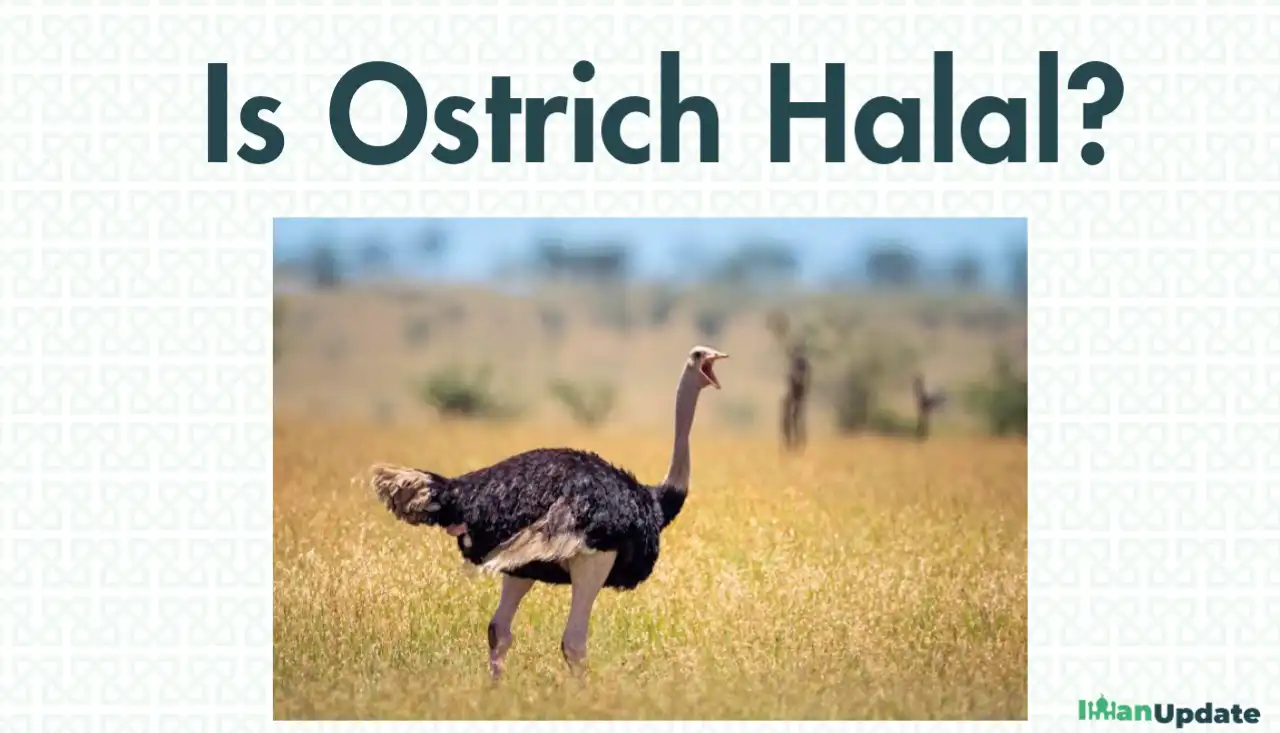Is Ostrich Halal in Islam? A Detailed Explanation

Ostrich meat is becoming increasingly popular across the globe, renowned for its lean texture and protein-rich nature.
Known to have a taste and texture similar to beef but with lower fat and cholesterol content, ostrich is a preferred option for health-conscious individuals. But for Muslims who follow Islamic dietary laws, the pressing question arises: Is ostrich meat halal?
Islamic dietary rules, derived from the Quran and Sunnah, dictate what is permissible (halal) and impermissible (haram) for Muslims to consume.
These laws are crucial as they guide over a billion Muslims in choosing their food. In this article, we will thoroughly examine the Islamic ruling on ostrich meat, providing evidence from the Quran, hadith, and the opinions of renowned scholars.
Is Ostrich Halal in Islam?
Yes, ostrich meat is considered halal, provided the animal is slaughtered in accordance with Islamic law (zabiha). There is no stated prohibition against consuming ostrich, and Islamic scholars generally agree that it is permissible to eat. Since the ostrich is not a predatory bird and does not possess fangs or claws, it falls within the category of lawful animals.
As Allah says in the Quran:
“Say, ‘I do not find within that which was revealed to me [anything] forbidden to one who would eat it unless it be a dead animal or blood spilled out or the flesh of swine – for indeed, it is impure – or it be [that slaughtered in] disobedience, dedicated to other than Allah. But whoever is forced [by necessity], neither desiring [it] nor transgressing [its limit], then indeed, your Lord is Forgiving and Merciful.’”
(Surah An’am, 6:145)
This verse indicates that nothing is haram unless explicitly mentioned in the Quran or hadith. Since ostrich is not among the animals that have been prohibited, it is permissible to consume.
READ ALSO: Is Pigeon Halal? Halal Status of Pigeon Meat And Egg
Why Is Ostrich Halal?
The fundamental principle in Islamic dietary law is that everything is halal unless proven otherwise. This principle extends to all foods, including meats, as long as they meet the conditions set by Islamic guidelines.
The absence of any textual evidence that ostrich meat is haram, combined with its non-predatory nature, supports the permissibility of consuming it.
Renowned scholar Imam An-Nawawi (may Allah have mercy on him) said:
“Our companions unanimously agreed that it is permissible to eat ostriches, chickens, ducks, sand grouse, sparrows, larks, francolin, and pigeons…”
(Sharh al-Muhadhdhab, 7/22)
Furthermore, he emphasized the importance of proper slaughter, explaining that while waterfowl like ducks and geese are halal, they must be slaughtered according to Islamic law. This condition also applies to ostriches.
Scholarly Consensus on Ostrich Meat
There is a strong consensus among scholars that ostrich meat is halal. Across all major schools of thought (Hanafi, Shafi’i, Hanbali, and Maliki), scholars agree that non-predatory birds are lawful to eat.
This consensus is built on the general principle that unless there is explicit evidence proving something haram, it remains halal.
As the Prophet Muhammad (peace be upon him) taught, animals that do not hunt with claws or fangs are permissible. Since ostriches do not possess these traits, they are classified among the lawful birds, much like chickens and ducks.
Is Ostrich Egg Halal?
Yes, ostrich eggs are also considered halal, as they come from a bird that is permissible to eat. The principle of permissibility extends not only to the meat of the ostrich but also to its eggs. As long as the ostrich itself is halal, its eggs are likewise permissible to consume.
This ruling is based on the broader Islamic guidelines, which state that the products of halal animals—such as milk from cows or eggs from chickens—are also halal unless there is evidence proving otherwise.
How to Properly Slaughter Ostrich for Halal Consumption
For ostrich meat to remain halal, it must be slaughtered following Islamic guidelines. The process of zabiha requires that the name of Allah is invoked before slaughter, and the animal’s throat, windpipe, and blood vessels in the neck must be severed with a sharp blade. This allows the blood to drain out, making the meat pure for consumption.
Islamic scholars explain that for animals with long necks, like camels and ostriches, the slaughter should occur where the neck meets the chest, making it easier for the soul to depart and ensuring a humane process.
Special Cases When Muslims Can Eat Ostrich Meat
There are specific circumstances under which Muslims might consume ostrich meat, as outlined by Islamic scholars. These include:
- During Ihram (Pilgrimage State):
If a Muslim in a state of ihram (for Hajj or Umrah) hunts and kills an ostrich, they must offer a penalty or sacrifice in expiation. Imam Al-Shafi’i stated:
“If a muhrim (pilgrim) hunts an ostrich, a sacrifice must be offered.”
(al-Umm, 2/210)
- Proper Slaughter Method:
Scholars have specified that animals with long necks, like ostriches, should be slaughtered at the base of the neck where it meets the chest. This ensures a proper halal slaughter. - Vows and Oaths Involving Ostrich Meat:
Ibn Hazm explained:
“If someone swears not to eat eggs, the vow is broken only if they eat chicken eggs specifically. Eating ostrich eggs does not break the vow, as it belongs to a different category of bird.”
(al-Muhalla, 6/327)
Are All Parts of the Ostrich Halal?
Yes, all parts of the ostrich are halal for consumption, provided the bird is slaughtered according to Islamic guidelines. This includes the meat, the eggs, and even the internal organs, as there is no prohibition against consuming any specific parts of the ostrich.
Conclusion
In conclusion, ostrich meat is considered halal for Muslims to eat as long as it is slaughtered in accordance with Islamic guidelines.
There is no evidence in the Quran or hadith that prohibits ostrich meat, and it falls within the general category of lawful animals. Scholars from all major Islamic schools of thought agree on its permissibility, making it an acceptable choice for Muslims seeking healthy, halal alternatives to traditional meats.
If you are considering adding ostrich to your diet, make sure to purchase it from a halal-certified source to ensure that it has been slaughtered in the proper manner.
As always, if you are in doubt about the permissibility of any food, seek guidance from a knowledgeable scholar.






